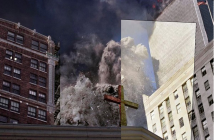I know I've been posting a lot lately about Boston's mayoral race, but I think it is important for artists to ask politicians of all levels for a clear and effect policy regarding the creative economy. Artists pushed hard for reform of the Massachusetts Health Care reform laws, have pressured Governor Deval Patrick and even President Obama to consider the creative economy as an important economic and political faction.
Boston is an influential city in New England politics, and as a Boston resident I am proud to see how quickly and comprehensively our mayoral candidates have included the creative economy in their platforms.
This afternoon, I received a response from the Sam Yoon campaign to some of my questions. Here are his responses, unedited:
Let me start off by saying that as a lifelong musician, growing our creative economy and increasing resources for arts education here in Boston is something I am personally committed to. I began playing the piano and jazz flute – yes the jazz flute – as a child, and the influence of music in my life over the years has been unmistakable.
What we have lacked in Boston is political leadership to bring resources, institutions, organizations and government together to advance this agenda. 10-point plans released in the context of a campaign can only go so far in the fight to make Boston a leader in the arts. What's important to furthing this cause is to have a leader who knows how to bring people together, across dividing lines, and do the hard work of getting people to find common ground as a starting point for making change. My ten years of work as a community organizer have given me this experience and I am fully committed to working with organizations like yours to make this change happen.
Does Mr. Yoon support growing the creative economy in Boston, and if so, how would he use the position of Mayor to advance his policies?
I fully support expanding the creative economy in our City. Boston is often referred to as the "Athens of America," but the City has developed a reputation for becoming an exporter of, rather than a market for cultural capital – we foster and train world class artistic, literary, musical and theatrical talents only to watch as they depart to establish careers in the more hospitable cultural environments of cities like New York, Chicago, or L.A. Boston has a wealth of talent – from the Boston Ballet to the Boston Symphony Orchestra – there is no reason we cannot be a haven for artistic development.
But without leadership that makes this a priority, Boston will continue to see it's best talent lost to other cities. Currently, the only municipal government body designated to oversee arts in the City is the Boston Cultural Council. It is a poorly run, under developed city agency that falls under the broad umbrella of the Mayor's Office of Arts, Tourism, and Special Events. We can do better.
A Yoon Administration would establish a Cabinet-level position that focuses solely on Boston's Cultural Affairs. This would not only reinforce the importance of the arts in our City, but would also signal to the rest of the country that Boston is ready to be a leader in this area.
What, specifically, would he enact as Mayor that would change, expand/diminish or improve upon the current policies relating to the creative economy?
There are many things that we can do in Boston to make our City a friendlier place for the arts community. Here are some of my ideas for how we can move forward in expanding our creative economy.
- Establish a cabinet level position focused solely on the arts. "Boston's Office for the Arts and Cultural Affairs" with the Commissioner for the Arts and Cultural Affairs being the advocate on behalf of the arts community to the office of the Mayor.
- Work with planners and developers to stabilize and expand the city's stock of affordable live/work space. Particularly in areas of the city like the Fort Point Channel neighborhood which have seen their galleries and work spaces taken over by development or have been driven out by exorbitant rent costs. If we have a development process centered on a shared vision for our neighborhoods rather than the bottom line, then we can ensure that artists have the spaces they need to thrive in Boston.
- Establish a "one-stop" licensing and permit desk for groups seeking to establish/develop new performance spaces such as small theaters and nightclubs. In addition, a more streamlined permitting process will encourage people to use public outdoor spaces (like parks) more frequently for festivals and community art installations. The current regulatory process is confusing and filled with red tape.
- Partner with cultural and educational institutions to build a new audience for cultural events and performances by establishing "benchmarks" of cultural literacy as part of the BPS core curriculum.
- Convene an annual performing arts summit with the aim of stabilizing and expanding smaller and mid-size downtown performance venues.
Where does he see potential for growth that is currently untapped?
I think there is enormous untapped potential in the diversity of our neighborhoods. Right now, when most people think of art in Boston they picture Fort Point Channel, the South End, or maybe the Back Bay. But these are not the only areas in our city where artists are - I think of the Roxbury Film Festival, the Jorge Hernandez Cultural Center, or DOT Art in my own neighborhood of Dorchester - there are amazingly talented artists in every area of the City.
One of the major reasons I see this centralization happening is that we don't have a city planning agency with an overall vision for Boston. We should be able to build live/work space in Allston. We should be able to ensure that artists in Dorchester have sufficient gallery space for their works and performances. We can make it easier for residents near Franklin Park to obtain permits to use the park for a local arts festival. The way to do this is to center our city's development process not on a bottom line, but on a shared vision for each and every community throughout Boston.
As always, Big RED & Shiny does not promote any particular candidate, and encourages everyone to consider a wide range of issues, including arts policies, when choosing a mayor.


